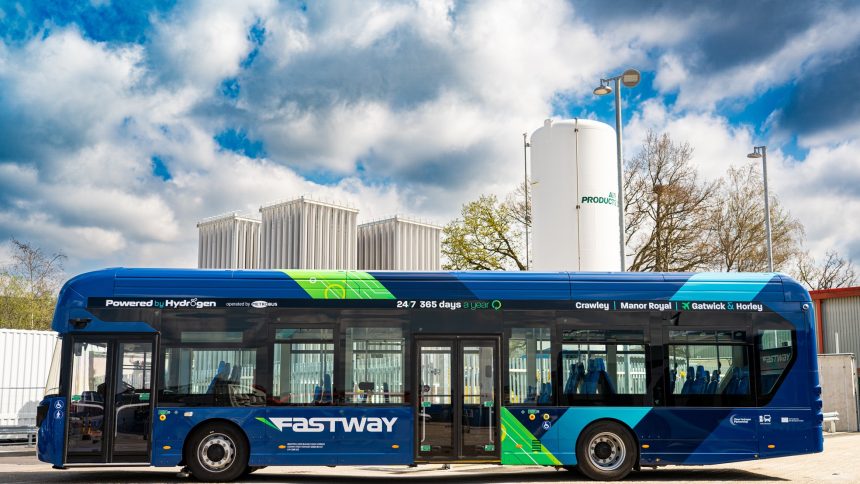The Metrobus depot in Crawley has put into operation a liquid hydrogen fuelling station for its fleet of Wrightbus hydrogen fuel cell-electric buses. It represents what the Go-Ahead Group subsidiary says is “a huge step forward for sustainable travel.”
Metrobus was previously reliant on gaseous hydrogen to support its GB Kite Hydroliner single-deckers. That left it unable to fuel all those buses and to have them in operation each day.
While regulatory challenges remain before the liquid hydrogen fuelling station can operate at full capacity, it was able to fuel nine buses on its first day in use. Hydrogen stored as liquid is converted to gas to be held in bus-mounted tanks. Eight minutes is required to replenish the on-bus hydrogen storage from empty to full.
Metrobus is now calling for hydrogen regulations to change “to support the sustainable goal of decarbonisation in the transport industry.” The operator says that use of hydrogen stored as a liquid “marks the next step to a greener future.”
The hydrogen buses already at Crawley are employed on Fastway services. In 2023, the operator said that it chose hydrogen because of the high utilisation of those vehicles and the need for them to be turned around quickly between duties.
Those in use have a range of up to 600 miles, which Metrobus says is double that of a comparable electric vehicle.
Brighton and Hove Buses and Metrobus Managing Director Ed Wills adds that the business’s plans call for all Fastway services to operate with hydrogen buses, requiring 16 on routes 10 and 20, and nine on route 100. In the longer-term, up to 54 hydrogen vehicles will work from Crawley.
“This innovation for buses is a giant leap forward tor sustainable transport, with Metrobus leading the way in the decarbonisation of local public transport,” adds Mr Wills. “Less emissions from road vehicles helps to tackle climate change, benefitting the environment and the communities we serve.”



























